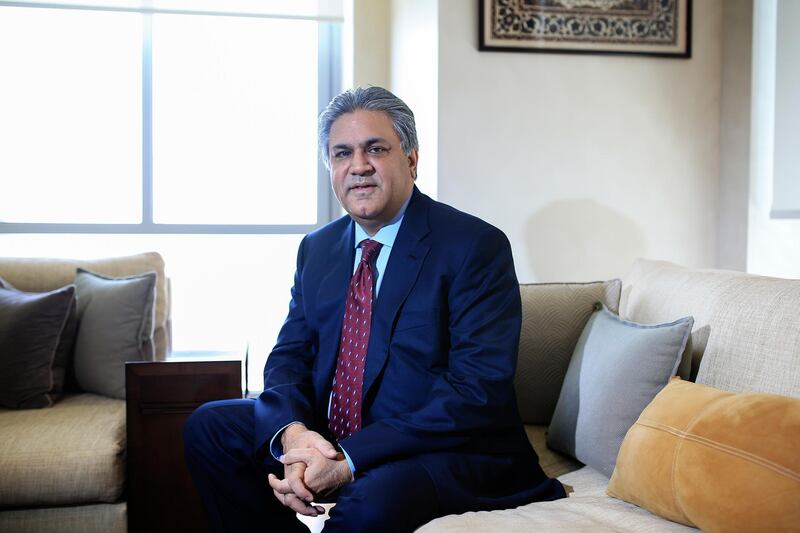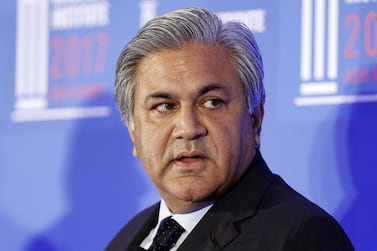The founder of the now defunct Abraaj Group, Arif Naqvi, could be stripped of a prestigious business award after his arrest.
The group behind the Oslo Business for Peace Award, known as the Nobel Prize for business, indicated it would launch an investigation into Mr Naqvi who won the prize in 2013.
The reassessment marks the latest sharp change in fortunes for a man behind one of the world’s most successful private equity businesses.
Mr Naqvi is due in a UK court this week accused by the US of fraud for allegedly misappropriating millions of dollars.
He is no longer a trustee of the charitable wing of Interpol and has resigned his role on the board of the B Team – a group of high-profile business leaders promoting social and environmental causes.
The Business for Peace prize was awarded to five people in 2013 including Mr Naqvi and Nadia Al Sakkaf, Chief Editor of the Yemen Times. Former Nobel Peace Prize winners help to choose winners of the award.
The citation for Mr Naqvi said that “his work in promoting responsible business practices is pioneering in the private equity industry”.
In his biography in an annual report for his charity, the Aman Foundation, the prize was described as “the highest form of recognition given to individual private sector leaders for fostering peace and stability through business”.
But the foundation behind the said on Thursday that they were aware of the controversy surrounding Mr Naqvi and had a process to ensure that its winners remained “future role models for other business leaders”.
The prize has never been rescinded in its decade-long history.
“Business for Peace has a procedure for investigating negative allegations or facts about our past award recipients and taking steps based on the outcome of the investigation,” a spokesman said.
“As a policy, we only comment on outcomes.”
Mr Naqvi was arrested on April 10 at Heathrow Airport as he was preparing to leave Britain, where he was based in after the world’s biggest private-equity insolvency.
Before its demise, the group claimed to control almost $14bn (Dh51.4bn) of assets in funds focused on emerging markets.
US prosecutors claim that senior Abraaj officials falsely inflated the value of its funds, and defrauded investors of hundreds of millions of pounds. Two other former executives have also been arrested.
Mr Naqvi is due in court in London on Friday where he is expected to seek bail pending an extradition process to the US, which could last up to two years.
He has denied any wrongdoing but his reputation has been tarnished by the collapse of Abraaj, which came after investors brought in investigators to audit the finances of one of its funds.
Abraaj went into liquidation in June last year.
Mr Naqvi was reportedly suspended from the board of trustees of the Interpol Foundation in July last year after an arrest warrant was issued in the UAE for allegedly writing dishonoured cheques.
The case was later resolved but he is no longer on the board of the foundation.
The B Team – whose members include British entrepreneur Richard Branson and Indian industrialist Ratan Tata – said he quit the group in August 2018.
“Arif Naqvi joined the B Team as a Leader in December 2016,” it said. “Following the news about the Abraaj Group, Mr Naqvi stepped down from his position on the B Team Board in August 2018. The B Team board accepted Mr. Naqvi’s resignation.”
Mr Naqvi maintains his innocence of the fraud allegations and “fully expects to be cleared of any charges,” a spokesman said after the executive's arrest this month.
“For almost a year since the commencement of the provisional liquidations, he has been working tirelessly to maximise returns for Abraaj's creditors.”
Meanwhile, a former senior director of the company was permitted by a London judge to change the place where he checked in with police as part of his bail conditions.
Sivendran Vettivetpillai is also fighting a US extradition request over the allegations.






